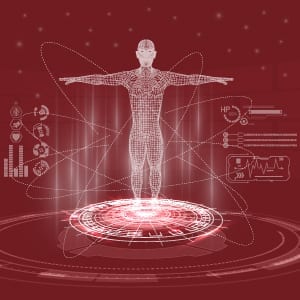An outbreak of a respiratory illness caused by a new coronavirus, first identified in Wuhan, China, has captivated the public since January 6. On this date, the CDC announced the coronavirus outbreak. An AI-powered disease monitoring platform detected the outbreak a week earlier.
The speed of AI in health care is one advantage that demonstrates the impact of AI in all aspects of health care, including care delivery, research, early detection and pharmacovigilance, diagnosis, and treatment.
The following list of examples of the impact of AI in health care covers all of these areas.
1. AI and automation make providers more efficient
While it may seem mundane, prioritization is the key to better health care. Delivering care is an exercise in managing scarcity: scarce time, scarce expertise, and scarce treatments. AI in health care helps to prioritize this scarcity for better efficiency, outcomes, and population health.
AI and automation help with more efficient scheduling. Anyone who has been in a hospital or a doctor’s office understands that scheduling can be inefficient. Better scheduling, driven by AI can help. Streamlined operations through Revenue Cycle Management, powered by AI, helps providers to be in better shape to deliver better care
2. AI in healthcare delivers care to more places
More dramatically, AI is helping people manage their own care. AI-driven self-service helps patients streamline the use of expensive visits to acute care facilities by helping people and their caregivers determine when and where to seek care and when to stay home.
Of course, scarcity of specialists, like technicians who can read radiological tests, are an issue in developing countries and in rural areas in the US. AI in healthcare helps expand the reach of better care to under-served communities, in combination with telemedicine.
3. AI in healthcare research uncovers complex relationships
Predictive Analytics has been used for drug discovery for a long time. These techniques help identify how combinations of molecules affect biological function to identify new drugs. Essentially, an AI-based approach is more efficient and effective than a traditional approach because AI prediction can replace some of use of expensive testing of molecules and suggest more complex combinations of molecules that may never have been considered with human-only research.
AI in health care has moved beyond general drug discovery to address personalized medicine. Vast datasets of clinical, genetic, and molecular data are being deployed to help physicians address, for example, cancer treatments and cures.
4. The impact of AI on early detection and pharmacovigilance
AI doesn’t just detect potential outbreaks. For example, AI in health care is being used to detect cancer at earlier stages. Mammograms are known to produce a high percentage of false positives; AI is 30 times faster and 99% accurate. Similar advances can detect cardiac issues and even behavioral health issues, like the onset of bipolar episodes.
Pharmacovigilance, or drug safety, detects and addresses the adverse effects of drugs. With thousands of drugs on the market, both prescription and over the counter. It’s nearly impossible for medical professionals and consumers to avoid issues with the help of AI.
5. The impact of AI on reducing diagnosis errors
10% to 15% of diagnostic errors are due to missed, incorrect, or delayed errors. AI techniques like computer vision help radiologists and other medical specialists by finding patterns that the human eye simply cannot see.
Humans may have other issues that may affect diagnoses: inconsistent knowledge, misreading patient input, and not integrating medical information are examples. AI in health care is not perfect. But combined with a medical professional, these techniques have a huge impact on care.
How can Syntelli help?
Contact us to learn more about how we can help manage the overwhelming data assets in health care or employ AI in health care for better operations and, ultimately, better patient outcomes.

